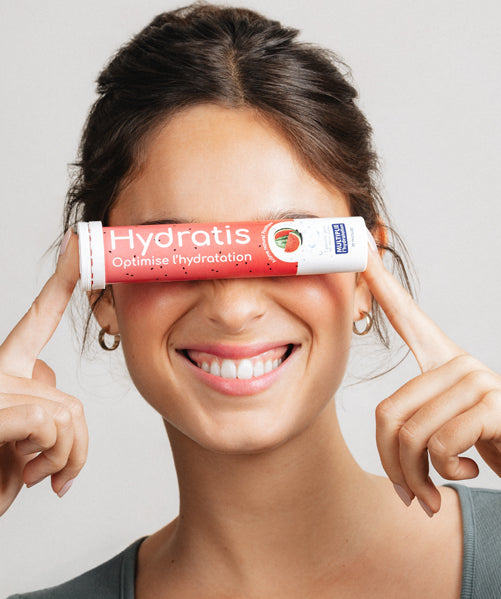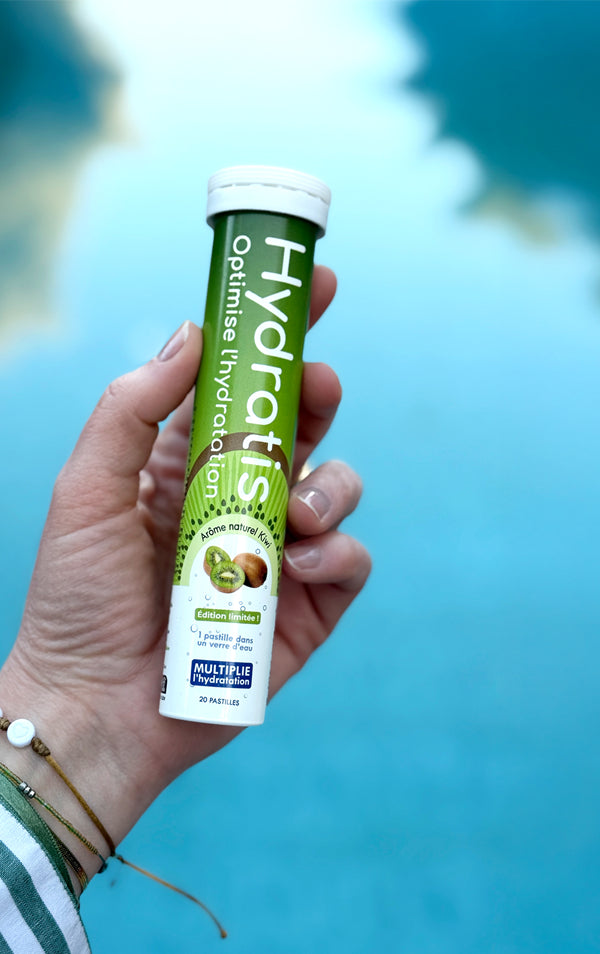As we age, the human body undergoes numerous changes, some of which directly affect nutritional needs and nutrient absorption . In seniors, these changes can lead to various nutritional deficiencies , significantly impacting their health and quality of life. This article aims to explore these deficiencies , highlighting the nutrients often lacking in this age group and proposing strategies for effectively preventing and managing them on a daily basis.
Physiological and nutritional changes in older people
Aging brings about a series of notable physiological changes that directly influence eating habits, digestive capacity, and the assimilation of nutrients necessary for maintaining health.
Decreased sensation of thirst and risk of dehydration
Among these changes, a decreased sensation of thirst is often observed, which can lead to dehydration . Furthermore, kidney function in older adults may be impaired, thus affecting waste elimination and fluid balance .
Decreased digestive efficiency
Furthermore, decreased digestive efficiency is common, caused by factors such as reduced digestive enzyme production and slowed intestinal motility. These changes can lead to difficulties in breaking down and absorbing key nutrients.
Impact on nutrient assimilation
Difficulties in assimilating food affect the absorption of proteins, vitamins, and minerals, making assimilation less efficient.
During aging, metabolism also undergoes changes, often characterized by a reduction in basal metabolic rate. This change can affect how the body uses and stores energy, directly impacting weight and body composition.
Challenges related to chronic diseases and medications
Seniors often face various chronic illnesses , which can be influenced by diet. Taking medication for these illnesses can also impact appetite and nutrient absorption.

These combined factors increase the risk of malnutrition in older adults. Therefore, it is crucial to carefully monitor their diet and adapt it to meet their specific needs. This includes paying particular attention to essential nutrient intake, hydration management , and consideration of dietary restrictions and drug interactions.
The most common deficiencies in the elderly and their consequences
Older people are particularly susceptible to developing certain nutritional deficiencies .
Vitamin D deficiency
Vitamin D is crucial for bone health, calcium absorption, and immune function. In older adults, this deficiency is often exacerbated by reduced sun exposure, which is a natural source of vitamin D. Furthermore, with age, the skin becomes less efficient at synthesizing this vitamin. This deficiency can lead to weakened bones, increasing the risk of fractures and osteoporosis.
Calcium Deficiency
Calcium is essential for maintaining strong bones and normal muscle and nerve function. With age, calcium absorption can decrease, and diets are often lacking in calcium-rich foods. This deficiency can accelerate bone loss and also increase the risk of developing osteoporosis.
Iron Deficiency
Iron is a key component of hemoglobin, a protein that carries oxygen in the blood. In older adults, iron deficiency can be caused by an inadequate diet, reduced absorption, or chronic blood loss. This deficiency can lead to anemia, which will cause fatigue and general weakness.
Vitamin B deficiency
B vitamins , particularly B12, are essential for many functions, including nerve and metabolic function. Vitamin B12 is especially important, and deficiency is common in older adults, often due to reduced absorption caused by changes in gastric acid secretion.
Other nutrients can also be deficient, such as vitamin B6, vitamin E, magnesium, and zinc. These deficiencies can affect various aspects of health , ranging from immune function to skin health and mental well-being.
Strategies to prevent deficiencies
Food
To prevent nutrient deficiencies in seniors, it is important to eat a rich and varied diet. It is essential to include nutrient-dense foods such as fruits, vegetables, and whole grains in every meal.

It is also crucial to adapt their diet to provide the adequate amount of protein, which is essential for maintaining muscle mass and strength. They will need to eat lean proteins that contain a low amount of fat, such as poultry, fish, eggs, and lentils. However, the quality of the protein is also important, as it must be easily digestible. This will help prevent muscle loss and strengthen muscle tone.
Special attention should be paid to ensuring sufficient intake of calcium, vitamin D, and vitamin B. Therefore, it is important to eat calcium-rich foods (such as low-fat dairy products, almonds, and leafy green vegetables) and to ensure sun exposure with sun protection. It is also important to consider foods that are easy to chew and digest, especially if the person has physical or dental limitations.
Supplementation
In some cases, supplements may be necessary to address nutritional deficiencies, particularly for vitamin D, calcium, and vitamin B12. However, supplementation should be viewed for what it is: a complement to a balanced diet, not a replacement. It is recommended to consult a healthcare professional to develop a suitable supplementation plan.
Hydration
Daily hydration is also essential for seniors, as it directly influences nutrient absorption and the maintenance of health. With age, the sensation of thirst diminishes, increasing the risk of dehydration. Therefore, it is important to ensure regular consumption of water and other fluids. Furthermore, water helps facilitate digestion, transport nutrients, and eliminate waste. Adequate hydration can also improve skin condition, thus contributing to overall well-being.

Hydratis will help improve fluid absorption and provide an additional supply of minerals and trace elements . This will help provide energy. Our solution is enriched with magnesium , potassium , sodium , and zinc , crucial minerals for this age group. Magnesium , for example, reduces fatigue and maintains electrolyte balance, thus promoting normal energy metabolism and optimal functioning of the nervous and muscular systems. Manganese supports healthy energy metabolism, protects against oxidative stress, and promotes healthy connective tissue. Potassium is crucial for the nervous system, muscle function, and blood pressure regulation. Zinc , meanwhile, is a major asset for the immune system.
Older adults face different nutritional needs, particularly regarding their appetite and ability to eat enough. However, by adopting a rich and varied diet , fortified with key nutrients and complemented by adequate hydration , it is possible to mitigate these deficiencies. In short, careful nutrition and proper hydration are essential for preserving the health and well-being of older adults.
Enjoy your meal and stay hydrated !
Bibliography
PubMed. December 1981. “Age related physiological changes and their clinical significance” - https://www.ncbi.nlm.nih.gov/pmc/articles/PMC1273316/
PubMed. January 4, 2023. “Physiology Aging” - https://www.ncbi.nlm.nih.gov/books/NBK556106/
PubMed. 2019. “Nutritional Interventions for Elderly and Considerations for the Development of Geriatric Foods” - https://www.ncbi.nlm.nih.gov/pmc/articles/PMC6971894/
Science Direct. September 2015. “Changes during aging and their association with malnutrition” -https://www.sciencedirect.com/science/article/pii/S2210833515000672
PubMed. 2021. “Nutrition and Healthy Aging: Prevention and Treatment of Gastrointestinal Diseases” - https://www.ncbi.nlm.nih.gov/pmc/articles/PMC8706789/
Cambridge University. January 30, 2019. “Nutritional challenges for older adults in Europe: current status and future directions” - https://www.cambridge.org/core/journals/proceedingsof-the-nutrition-society/article/nutritional-challenges-for-older-adults-in-europe-current-status-andfuture-directions/75EAA0A3525BD70078D1F5D9A8123974






